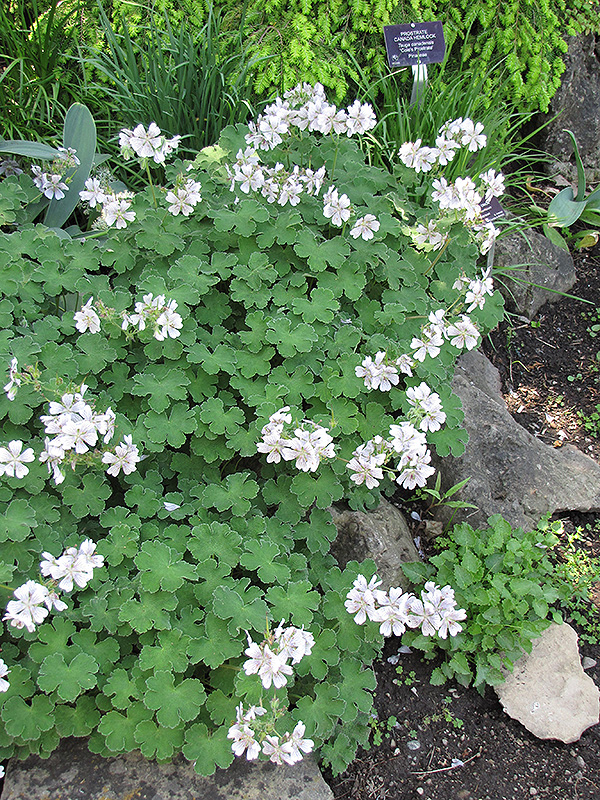Height: 8 inches
Spacing: 10 inches
Sunlight:
![]()
![]()
Hardiness Zone: 3b
Description:
This species forms a small clump of gray-green leaves that have a pebbly texture; clusters of white flowers appear in late spring with highly visible veining which is great contrast; lovely massed in the garden or mixed containers
Ornamental Features
Dwarf Cranesbill has masses of beautiful white flowers with purple veins at the ends of the stems from late spring to late summer, which are most effective when planted in groupings. Its deeply cut lobed palmate leaves remain grayish green in colour throughout the season.
Landscape Attributes
Dwarf Cranesbill is a dense herbaceous perennial with a mounded form. Its relatively fine texture sets it apart from other garden plants with less refined foliage.
This is a relatively low maintenance plant, and should only be pruned after flowering to avoid removing any of the current season's flowers. Deer don't particularly care for this plant and will usually leave it alone in favor of tastier treats. It has no significant negative characteristics.
Dwarf Cranesbill is recommended for the following landscape applications;
- Mass Planting
- Rock/Alpine Gardens
- Border Edging
- General Garden Use
- Container Planting
Planting & Growing
Dwarf Cranesbill will grow to be about 8 inches tall at maturity, with a spread of 12 inches. When grown in masses or used as a bedding plant, individual plants should be spaced approximately 10 inches apart. Its foliage tends to remain low and dense right to the ground. It grows at a medium rate, and under ideal conditions can be expected to live for approximately 10 years. As an herbaceous perennial, this plant will usually die back to the crown each winter, and will regrow from the base each spring. Be careful not to disturb the crown in late winter when it may not be readily seen!
This plant does best in full sun to partial shade. It is very adaptable to both dry and moist growing conditions, but will not tolerate any standing water. It is not particular as to soil pH, but grows best in poor soils. It is somewhat tolerant of urban pollution. Consider covering it with a thick layer of mulch in winter to protect it in exposed locations or colder microclimates. This species is not originally from North America. It can be propagated by division.
Dwarf Cranesbill is a fine choice for the garden, but it is also a good selection for planting in outdoor pots and containers. It is often used as a 'filler' in the 'spiller-thriller-filler' container combination, providing a mass of flowers against which the thriller plants stand out. Note that when growing plants in outdoor containers and baskets, they may require more frequent waterings than they would in the yard or garden. Be aware that in our climate, most plants cannot be expected to survive the winter if left in containers outdoors, and this plant is no exception. Contact our experts for more information on how to protect it over the winter months.



